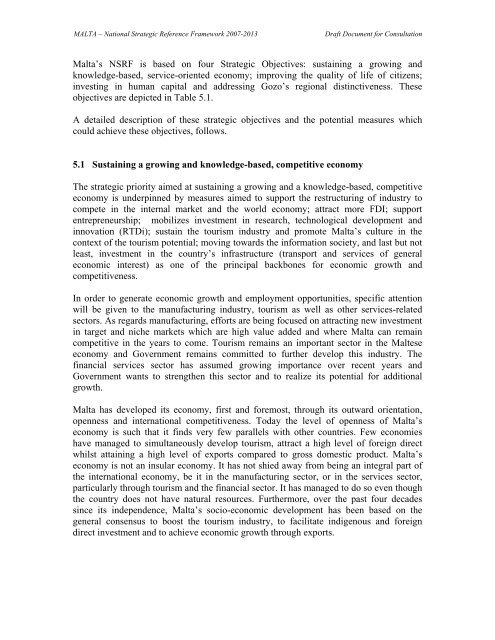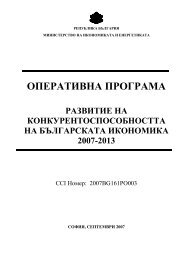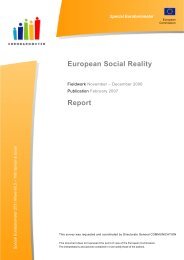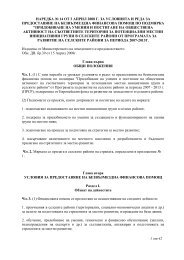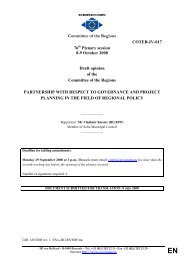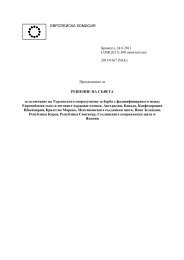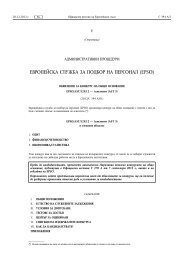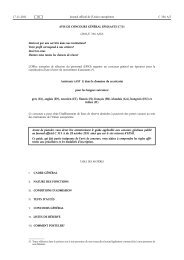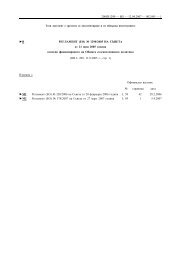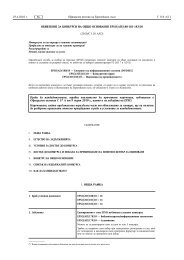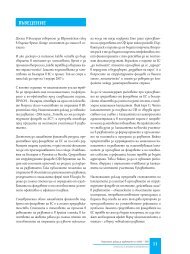National Strategic Reference Framework
National Strategic Reference Framework
National Strategic Reference Framework
Create successful ePaper yourself
Turn your PDF publications into a flip-book with our unique Google optimized e-Paper software.
MALTA – <strong>National</strong> <strong>Strategic</strong> <strong>Reference</strong> <strong>Framework</strong> 2007-2013 Draft Document for Consultation<br />
Malta’s NSRF is based on four <strong>Strategic</strong> Objectives: sustaining a growing and<br />
knowledge-based, service-oriented economy; improving the quality of life of citizens;<br />
investing in human capital and addressing Gozo’s regional distinctiveness. These<br />
objectives are depicted in Table 5.1.<br />
A detailed description of these strategic objectives and the potential measures which<br />
could achieve these objectives, follows.<br />
5.1 Sustaining a growing and knowledge-based, competitive economy<br />
The strategic priority aimed at sustaining a growing and a knowledge-based, competitive<br />
economy is underpinned by measures aimed to support the restructuring of industry to<br />
compete in the internal market and the world economy; attract more FDI; support<br />
entrepreneurship; mobilizes investment in research, technological development and<br />
innovation (RTDi); sustain the tourism industry and promote Malta’s culture in the<br />
context of the tourism potential; moving towards the information society, and last but not<br />
least, investment in the country’s infrastructure (transport and services of general<br />
economic interest) as one of the principal backbones for economic growth and<br />
competitiveness.<br />
In order to generate economic growth and employment opportunities, specific attention<br />
will be given to the manufacturing industry, tourism as well as other services-related<br />
sectors. As regards manufacturing, efforts are being focused on attracting new investment<br />
in target and niche markets which are high value added and where Malta can remain<br />
competitive in the years to come. Tourism remains an important sector in the Maltese<br />
economy and Government remains committed to further develop this industry. The<br />
financial services sector has assumed growing importance over recent years and<br />
Government wants to strengthen this sector and to realize its potential for additional<br />
growth.<br />
Malta has developed its economy, first and foremost, through its outward orientation,<br />
openness and international competitiveness. Today the level of openness of Malta’s<br />
economy is such that it finds very few parallels with other countries. Few economies<br />
have managed to simultaneously develop tourism, attract a high level of foreign direct<br />
whilst attaining a high level of exports compared to gross domestic product. Malta’s<br />
economy is not an insular economy. It has not shied away from being an integral part of<br />
the international economy, be it in the manufacturing sector, or in the services sector,<br />
particularly through tourism and the financial sector. It has managed to do so even though<br />
the country does not have natural resources. Furthermore, over the past four decades<br />
since its independence, Malta’s socio-economic development has been based on the<br />
general consensus to boost the tourism industry, to facilitate indigenous and foreign<br />
direct investment and to achieve economic growth through exports.


